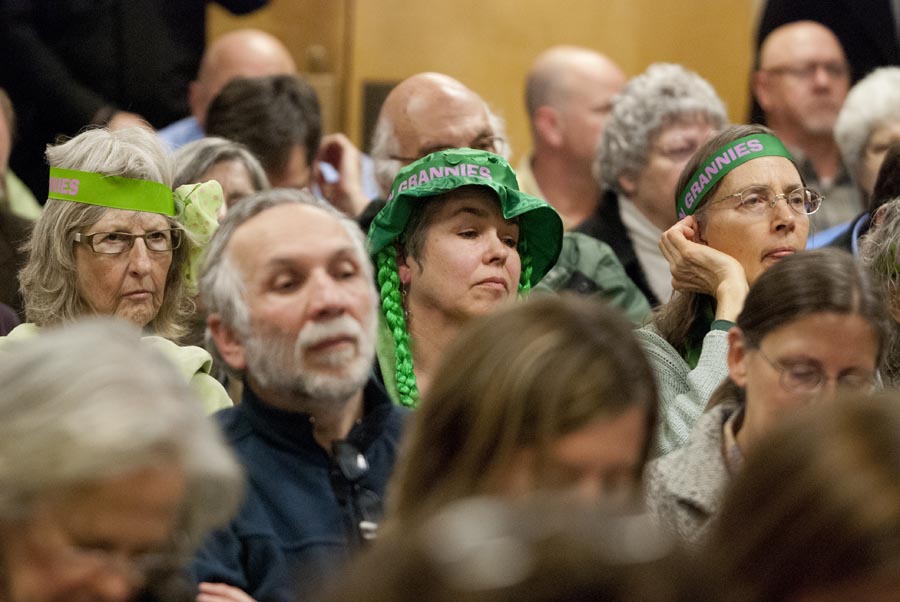The crowd at the hearing on proposed Progress Energy rate hikes, including members of the environmental group the Green Grannies. Photo by Max Cooper.
At a five-hour hearing conducted by the North Carolina Utilities Commission last night, every speaker except those representing the Council of Independent Business Owners and Biltmore Farms objected to a rate hike proposed by Progress Energy.
The roughly 60 speakers’ reasons for opposition ranged from the impact of the rate increases on the working poor to projected environmental damage.
“Unfortunately, every month I have to write a check to a company that is contributing to environmental degradation through the burning of fossil fuels, now they want more of my paycheck to go towards keeping their coal boilers running,” Emily Greenbaum said. “My income is already stretched thin, as I have substantial student loans to pay off, as many of us do. Also, like many folks of moderate means, I live in an old apartment that is very poorly insulated, which makes it difficult to keep warm in the winter.” She said already has to use space heaters and several layers of clothing to stay warm.
Stephanie Viziewski, an Asheville resident, asked if Progress would need a rate hike if it cut its executive’s salaries and didn’t spend as much money on lobbying, she blasted the proposed rate hike as “short term gains using yesterday’s energy sources.”
James Lee, pastor of St. Paul’s Baptist Church, struck a similar note.
“In the community and in my congregation, I see the people this will hurt,” he said. “Instead of Duke using the poor, elderly, unemployed and underemployed to increase their profits, I would challenge the executives to think it’s a good idea to raise rates in this environment to cut their salaries and their bonuses and fund their own projects.”
At one point, the group the Green Grannies tried to sing songs against the rate hike. NCUC Chair Edward Finley told them “we’re not going to sing during testimony,” but let them perform when the hearings took a break.
Max Swicegood, representing CIBO, dismissed the concerns and said the key priority is keeping the lights on.
“Alternative energy has proven its inability to sustain the demands of the electrical grid on a day-in, day-out basis,” Swicegood said. “The power company must have the tools to plan and produce the future electrical needs of this region… it is better to be in the light than in the dark.”




Duke energy should have a savings account to be used for upgrades. That is, money put aside from their enormous profits.
“enormous profits”
What is their profit margin?